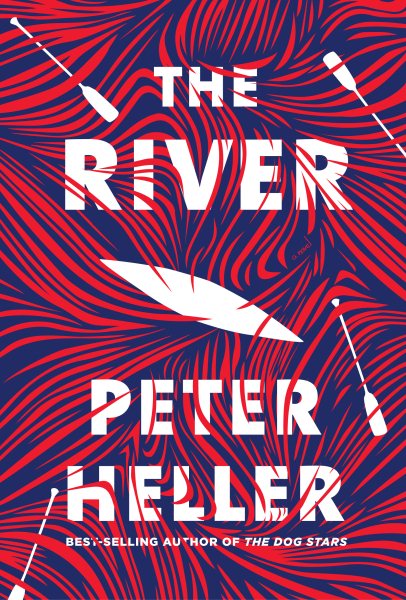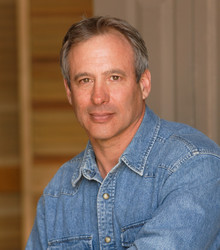Interview by Jana Hoops. Special to the Clarion-Ledger Sunday print edition (March 17)
 Award-winning, bestselling author Peter Heller reinforces his standing among America’s notable adventure writers with his riveting newest edition, The River.
Award-winning, bestselling author Peter Heller reinforces his standing among America’s notable adventure writers with his riveting newest edition, The River.
The hair-raising novel begins with two college friends embarking on the challenge of canoeing the Maskwa River in northern Canada, but what was expected to be a leisure trip turns into a desperate wilderness survival test beyond their imaginations.
An avid outdoorsman and adventure traveler, Heller’s writing is heavily influenced by these personal passions, resulting in three previous novels (bestsellers Celine, The Painter, and The Dog Stars) and four nonfiction works.
He holds an MFA from the Iowa Writers’ Workshop in poetry and fiction and is a regular contributor to Bloomberg Businessweek. He lives in Denver.
The River, and many of your previous books reveal your strong interest in adventure and nature stories. How did you develop your interest in writing about the outdoors?

Peter Heller
Ever since I was the littlest kid, all I wanted to do when I grew up was be a cowboy and drift the High Lonesome for weeks on horseback, or mountaineer, or canoe wild rivers. Maybe tough for a kid growing up in Brooklyn. But I loved reading anything about nature, about wild places, and the sea. And I think I knew that I would write about these places one day, because I began to study botany, ecology, birds. In college I learned to kayak, and that became a way to explore some of the most beautiful country.
I wrote about those expeditions for magazines, and in composing the stories I learned a lot that I used later on in writing fiction–techniques for creating a vivid sense of place and characters that jump off the page; and I learned about cadence and pacing.
I’m still happiest sitting at a fire by some mountain creek, drinking coffee, or stringing a fly rod. So now when I’m writing a novel, I often transport myself to the places I want to be, and they are usually remote, and there is usually a fire and a stream, rain, wind, the cries of birds.
The story in The River revolves around its two main characters, college students Jack and Wynn, opposites in many ways. Could you describe their friendship, and what drew them together?
Jack is a tough ranch kid from Kremmling, Colorado. He’s spent half his life in the saddle, and cooking over a fire and sleeping under the stars are second nature. Wynn is an architect’s son from Vermont. He’s a gentle giant, sweet in every cell, who loves nothing more than making ephemeral art out of stones and water. But they both love books–novels and adventure stories, and poetry–and they are both consummate outdoorsmen. They meet on a freshman orientation backpack trip in New Hampshire’s White Mountains, and they outstrip the group by miles as they talk excitedly about adventure stories and wild country. They discover that they are not at all literary snobs: they both adore Louis L’Amour westerns.
They become fast friends. What makes their friendship work, aside from these shared loves, is that they complement each other: Wynn expects the best from people, Jack is more skeptical and wary. And sometimes one has more appetite for risk, sometimes the other. How those traits play out is crucial to the story in The River.
The ill-fated river trip they plan as a leisurely break turns sinister, as they face not only unbelievable forces of weather and wildfire, but the possibility of being tracked by a would-be murderer. It is during this trip that Wynn discovers a different side of Jack, one that frightens him. What can you tell us about that, without giving the story away?
Jack is a hunter. He grew up facing extremes of weather in the rugged mountains of western Colorado. He spent weeks at a time in on horseback. He also suffered a hard personal tragedy when very young, and it affirmed his reticence, and gave him a certain wariness toward the vanities of humans, especially his own. He is tough to the bone. What Wynn discovers is that Jack is willing to protect their little party at all costs, without hesitation. That he is a warrior. That discovery can be scary.
Your description of the wildfire they battled is described in amazing detail. How were you able to write about this so realistically?
Years ago, when I was living in Paonia, Colorado, I stepped outside and saw a plume of smoke rising out of the junipers on the north side of the valley. I thought it looked very close to my friends’ place. I threw a shovel and a chainsaw in the back of the truck and raced up there.
By the time I got up the rough dirt track to the house there was a wall of dark smoke upwind. A volunteer fire truck was already there. We began cutting trees around the house, shoveling out flames where sparks landed, while Chuck and Jane shuttled valuables to their cars. Suddenly a stiff gust blew through and we heard trees exploding and the wall of smoke became flame. The firemen cut their hoses and yelled “Outta here!” I’ll never forget bumping down the track at the head of a line of vehicles with a cat doing crazy laps in the cab and smoke and sparks and flames crossing the road. We got down to a big irrigation canal where all the police and first responders had gathered, and I looked back. Ninety seconds later the fire swept the whole hillside. It was that close. It made a deep impression on me.
I also called Jim Mason, a fire chief and wildland firefighter in Glenwood Springs, who had battled some of the deadliest wildfires in our history, and he was invaluable in providing details, and in helping me understand some of the science of fire.
What’s your next literary “adventure”?
I just finished a very different novel called The Orchard. It’s about a young woman and her 8- year-old daughter who move to an orchard in southern Vermont. The woman, Hayley, is a towering translator of a famous Tang Dynasty poet named Li Xue. The book is about mothers and daughters, and language, and the power of place and of storytelling. I’m very excited about it.
Lemuria has selected Peter Heller’s The River as its April 2019 selection for its First Editions Club for Fiction.


Comments are closed.